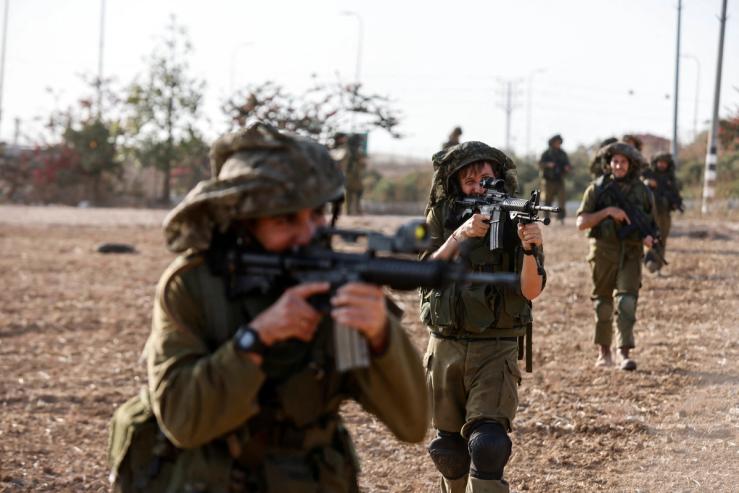The News
Israel on Saturday warned residents of Gaza that their city was now a “battlefield” — urging them in leaflets dropped from fighter jets to evacuate to the south ahead of expanded ground attacks.
“We have entered a new phase in the war,” Israeli Defense Minister Yoav Gallant said Saturday in a video address, following intense shelling in Gaza overnight.
Gallant added that operations in the Palestinian enclave will continue “until a new order is given,” but did not explicitly say whether this was the start of the long-anticipated ground invasion.
Israel increased its bombardment of the besieged territory Friday by launching a barrage of artillery shelling and airstrikes and causing a “total to near-total” internet blackout.
“Last night the ground in Gaza shook. We attacked above ground and below ground,” Gallant added, referring to the bombing of underground military tunnels built by Hamas.
The Hamas-controlled Gaza Ministry of Health said Saturday that more than 7,700 people have been killed since the war began, half of whom are children. These figures are disputed by the U.S., but some experts suggest that the toll may be actually higher.
Multiple outlets have reported that more than 1,400 in Israel have died since Hamas launched a deadly surprise attack on Oct 7.
“The war in the (Gaza) Strip will be long and difficult and we are prepared for it,” Israel’s Prime Minister Benjamin Netanyahu said at a news conference later Saturday.
SIGNALS
Hamas said Saturday that it was prepared to release hostages if Israeli freed all Palestinians held in its prisons. “The price to pay for the large number of enemy hostages in our hands is to empty the [Israeli] prisons of all Palestinian prisoners,” said Abu Obeida, spokesman for the Qassam Brigades, in a broadcast on a Hamas-run television channel. The announcement comes a day after Hamas told Russian state media that hostages won’t be released without a ceasefire. In Tel Aviv, Israeli Prime Minister Benjamin Netanyahu met with families of Israeli hostages, who have expressed outrage at the government’s failure to provide more information on their relatives’ safety as heavy bombing continues in Gaza. Hostages in the Palestinian territory are allegedly being held in an underground network of tunnels run by Hamas that was a target of intense shelling overnight.
A United Nations vote on Friday revealed a “snapshot of world opinion” with the U.S. looking “quite badly isolated,” Patrick Wintour, the Diplomatic Editor for the Guardian writes. A UN resolution to initiate a “sustained humanitarian truce” in Gaza won votes from 120 countries, including France, Spain and the U.K., despite not naming Hamas as a terrorist organization and criticism from Washington about the omission. Canada had proposed an amendment to the motion that would condemn Hamas for being responsible for the Oct. 7 attack, but it fell short of the two-thirds majority needed, with 88 in favor, 55 against, and 23 abstentions. The resolution was non-binding; the Security Council, which can pass binding resolutions, has not been able to come to agree on a motion on the crisis without the U.S. or Russia wielding its veto.
Debate continues about the media coverage surrounding an explosion at a Gaza hospital on Oct. 17 — which many outlets, citing sometimes-ambiguous sources, reported to have resulted in more than 500 casualties. Wartime coverage has never been easy, but changes in social media and the difficulty of access have made reporting on this conflict even harder. Media correspondent Brian Stelter found that “dangerous conditions, factual disputes, distortions and disinformation” have contributed to the overwhelming challenges of covering this war in real-time. Independent journalist David Zweig dug into the reporting on the hospital incident and concluded that the original source of the news could be traced back to a mistranslated video and Twitter post from Al Jazeera Arabic, which alluded to there being 500 “victims” and “casualties” but not deaths. “Newsrooms composed of dozens or hundreds of staff members...backed by billion-dollar corporate owners still published a claim that was never fact-checked at its source,” he writes. “How is it that, unlike those many people, I thought to go to the source—the actual interview in Arabic—and translate it?”



